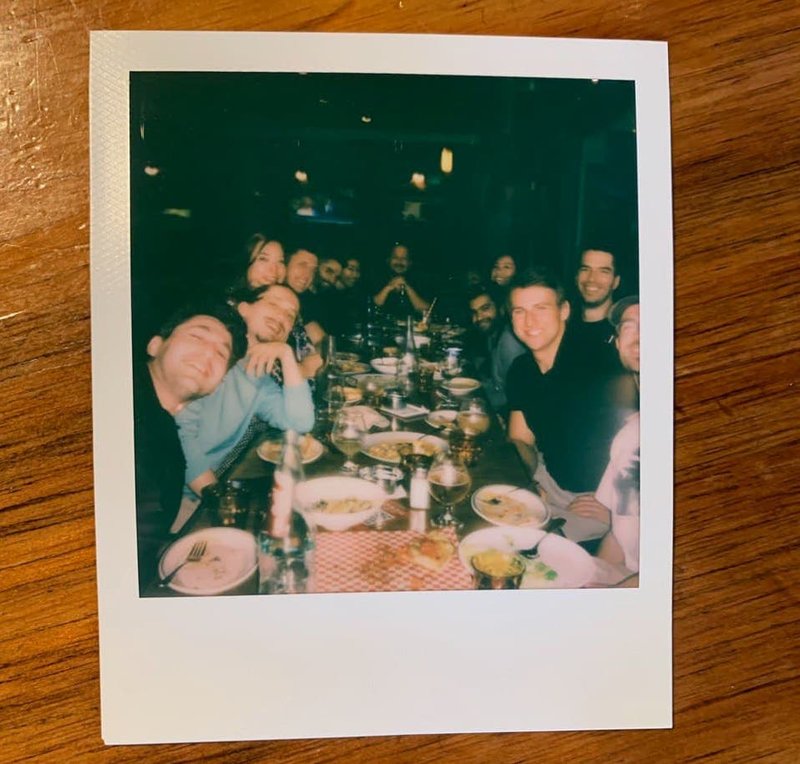From Edtech to Dev Tools: How I Ended Up at Replit
June 2022
I’ve some personal news to share with you: I’m finally ready to take on the next challenge in my professional journey. I decided to join Replit, where I’ll be spearheading Growth Engineering.
Replit is a San Francisco-based startup building a collaborative IDE, where software creators can learn, build, share, and monetize their work. To do this, they raised 100m from the best product-centric investors in the world -- Marc Andreessen, Peter Thiel, a16z (with Andrew Chen leading), Paul Graham, YC, and many others.
How I ended up part of this group of insanely talented hackers is quite a story.
I’ve been a fan of Replit’s work for a long time. As an edtech founder, I was amazed by how they were walking the fine line between learning and building. When it comes to companies like these, you usually see them fall neatly into two camps. They’re either edtech startups, or dev tools. Edtech is hard to scale, has an underwhelming business, but the potential for long-term impact. Dev tools capitalize on the ‘now’, monetize it with amazing margins, but usually have a shaky future as technology changes so fast. It’s never both. They’re mutually exclusive. And yet, Replit is an exception: the best of both worlds.
I started writing about the future of coding last year, and kept an eye on it ever since. My general idea is that dev tools will be a booming vertical in the next decade, and from here on a category-defining company will inevitably emerge.
One of these essays (“What’s the Future of IDEs?”) caught the attention of one of Replit’s co-founders, who sent me a Twitter DM asking me to join their team.
I genuinely thought it was a prank. Why would one of the best startups in the world want me, specifically? A random dude from the opposite side of the world?
Turns out that Replit is really just a bunch of gifted hackers — square pegs in round holes. A group of misfits that wanted me in because they thought I would fit in. That’s it. Who cares if you live 9 hours ahead? We can make it work. And if it doesn’t work, it just wasn’t meant to be. Substance over process. Pragmatism over rules.
Truth is: they must be like this. If you’re building the future of coding, you can’t be a cook following recipes. You must be a chef.
I have no way of knowing this for sure, but this is probably what Apple looked like in the late 70s. And this parallelism goes deeper than many realize -- maybe even inside the company itself. Most people compare Replit to Microsoft, but to me it’s much closer to the early Apple, from the vibe (that here is truly bonkers) to the way it manages emergent complexity. Both Replit (in the 2020s) and Apple (in the 1970s) are about carefully managing complexity to allow everyone to build amazing software, irrespective of their experience.
My final interview with Amjad, Replit’s CEO, was very telling in this regard. We spent most of it talking about meta-learning -- a topic I’m profoundly passionate about --, and about the tension between building for coders and building for students. The goal of the interview was to assess my cultural fit, and in return it allowed me to understand more of that culture. I was sold.
In a sense this really is my dream job: San Francisco mindset but remote-first; chasing big impact but with a strong bias towards action; a wonderful team with beautiful people, but with everyone encouraged to take extreme and radical ownership.
Everyone here moves with urgency and focus and is fearless and bold. I feel inspired and energized. I’ve already been to our San Francisco office once, and will be back to the States (this time in Hawaii and New York) next week.
I dreamt about the US startup scene for ages; now I get to be part of it.
However, this also feels like a continuation, a logical next step in my professional journey -- not an unexpected beginning that I’ve been just lucky enough to seize.
I already scaled an edtech co to 600k users with 0 marketing budget. We raised from early Facebook growth leads (among others) who taught me the ropes of what it means to build a product-led growth engine. It’s hard to explain, but it’s almost as if I’ve been trained for this… only I didn’t know back then. Or maybe it’s just that it’s easier to connect the dots looking backward. That’s just how our sense-making works.
In Replit, I was asked to spearhead Growth Engineering. It’s a fascinating and riveting combination of coding, marketing, and product. The role can probably be best described by this impeccable Andrew Chen quote I’ve always been so fond of:
Growth hackers embody the hybrid between marketer and coder needed to thrive in the age of platforms. The fastest way to spread your product is by distributing it on a platform using APIs, not MBAs.
In 2012 -- 10 years ago -- he called them growth hackers. Today the term has been emptied of its meaning, so we just call them growth engineers. But the idea is the same: API over MBA. Code over slides.
I’ll do my best to contribute to the growth of a project that I’m sure will change many lives.
We’re bringing the next billion creators online.
It’s gonna be wild.

• • •